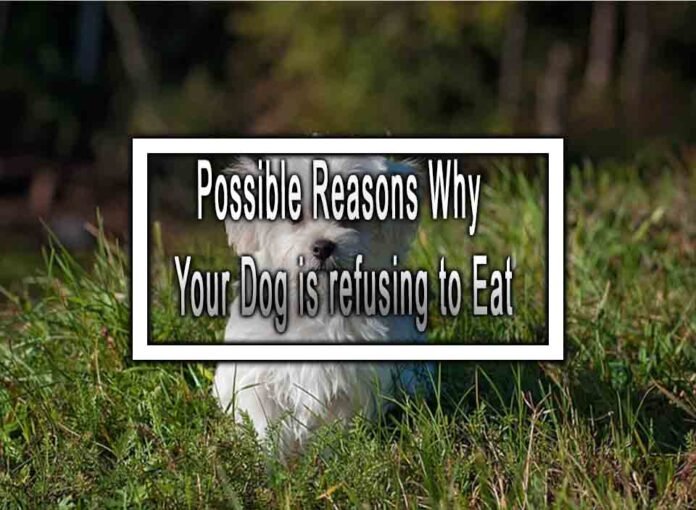There can be several reasons why a dog may refuse to eat. Here are some possible explanations:
1. Illness or Health Issues
Dogs may lose their appetite when they are unwell or experiencing health problems. If your dog’s appetite loss is accompanied by other symptoms such as lethargy, vomiting, diarrhea, or a change in behavior, it’s essential to consult a veterinarian to rule out any underlying medical conditions.
2. Dental Problems
Dental issues such as gum disease, tooth decay, or oral discomfort can make it painful for dogs to eat. Check your dog’s mouth for any signs of dental problems like swollen gums, broken teeth, or bad breath. If you suspect dental issues, consult your vet for a dental examination.
3. Recent Vaccinations or Medications
Some dogs may experience temporary loss of appetite after receiving vaccinations or starting a new medication. Monitor your dog’s behavior and consult your vet if the loss of appetite persists or if you notice any other concerning symptoms.
4. Stress or Anxiety
Dogs are sensitive creatures, and stress or anxiety can affect their appetite. Changes in the environment, routine, or the addition of new family members or pets can cause temporary loss of appetite. Providing a calm and secure environment, maintaining a consistent routine, and offering reassurance to your dog can help alleviate stress and encourage eating.

5. Food Preferences or Dislikes
Dogs, like humans, can have preferences and dislikes when it comes to food. If you have recently changed your dog’s diet or introduced new food, they may be hesitant to eat. It’s important to ensure that you are providing a balanced and appropriate diet for your dog’s age, breed, and health requirements.
6. Environmental Factors
External factors such as extreme temperatures, strong odors, or noisy surroundings can impact a dog’s appetite. Ensure that your dog’s eating area is comfortable, quiet, and free from distractions.
7. Age-related Changes
Older dogs may experience a decline in appetite due to age-related factors such as decreased metabolism, dental issues, or medical conditions. Adjusting the diet to meet their changing needs and consulting with a vet for guidance can be beneficial.
If your dog’s appetite loss persists or is accompanied by concerning symptoms, it’s crucial to consult a veterinarian for a proper evaluation and guidance. They can help identify the underlying cause and provide appropriate treatment or management options.











